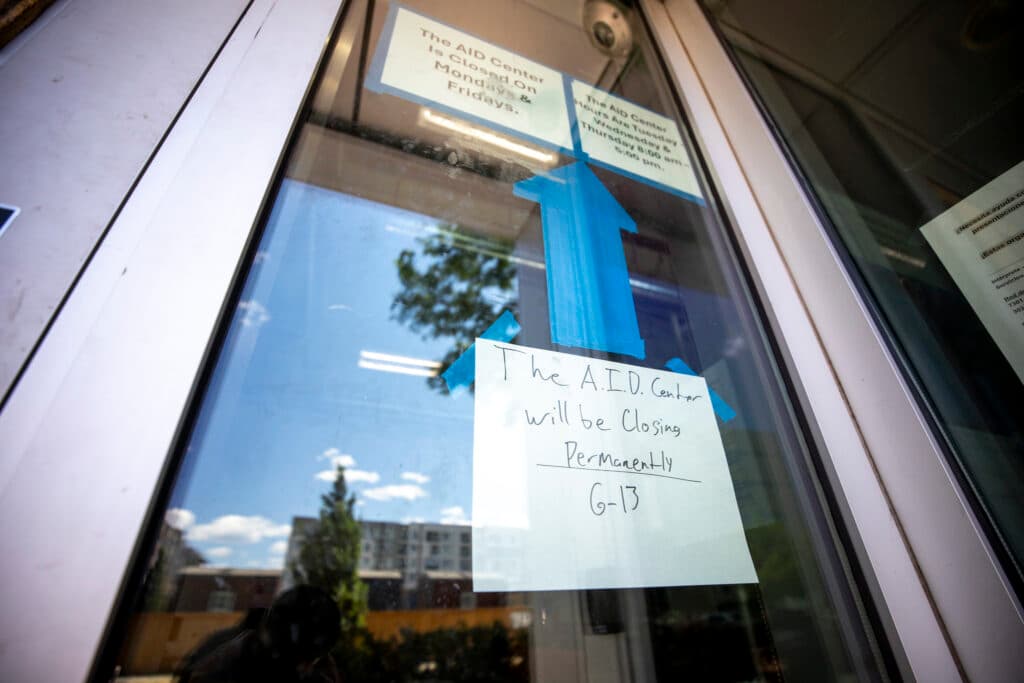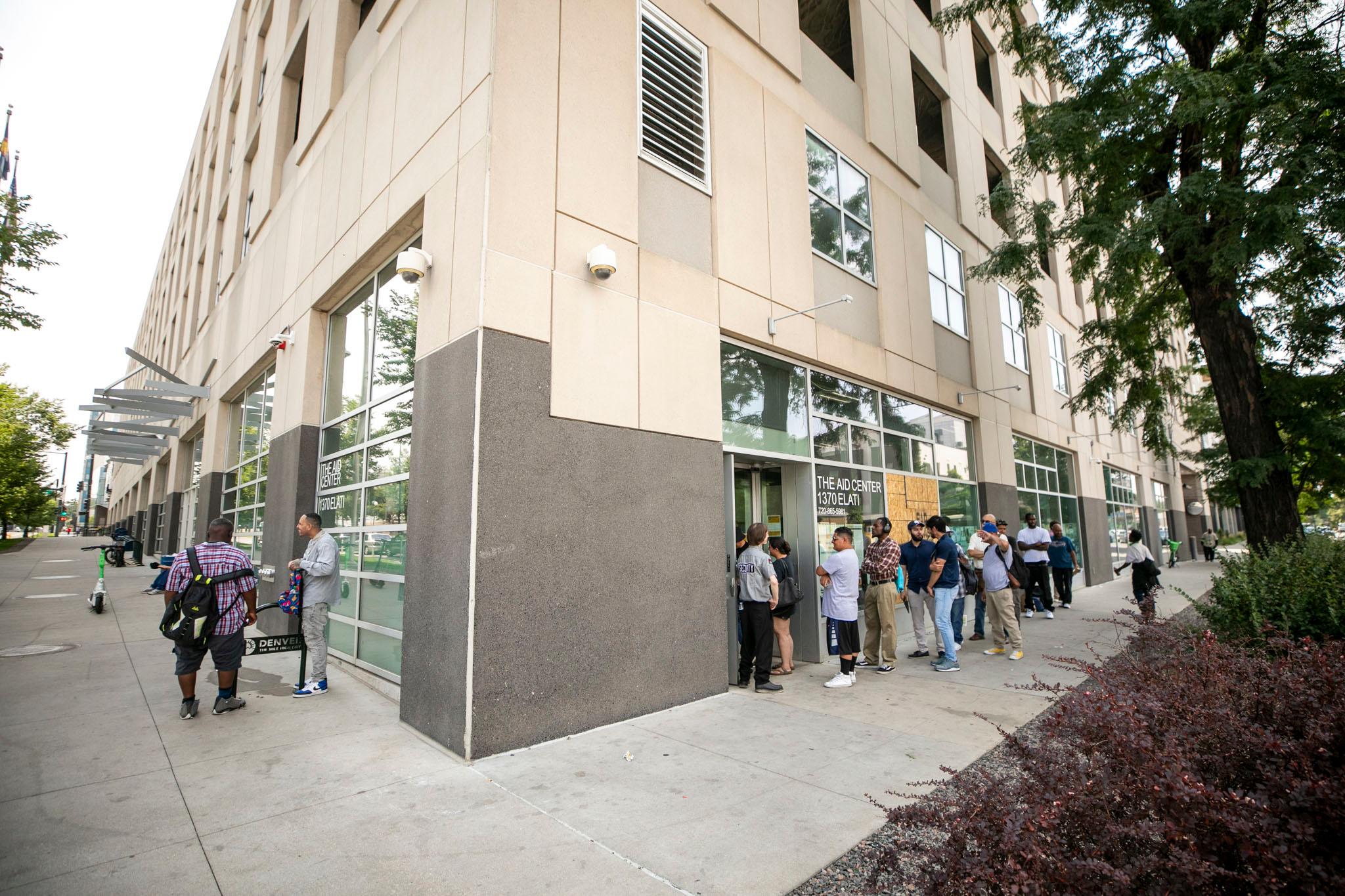On Monday, Denver officials announced the closure of a resource center for people dealing with addiction and homelessness. The decision drew disappointment and concern from service providers, who saw it as a crucial piece of the city’s safety net.
By Thursday, the city had changed course: The Assessment, Intake, and Diversion (AID) Center at 14th Avenue and Elati Street would remain open — for now.
“We have made the decision to postpone the closure of the AID Center and provide limited services while we determine a sustainable, long-term vision both for the space itself and for the resources it offers,” said Ben Sanders III, chief equity officer of The Mayor’s Office of Social Equity and Innovation, in a statement.
He continued: “We send our appreciation to the community for their feedback and shared enthusiasm for serving the people of Denver and look forward to discussing more in the coming months. We understand this announcement caught people off guard and apologize for the confusion.”
Sanders also emphasized that the building that the AID Center has occupied for the last two years will "remain in city hands."
Jon Ewing, spokesperson for Mayor Mike Johnston, said the city hasn’t set a new closure date for the center.
The closure was delayed because nonprofits and government agencies that rely on the space still need somewhere to meet with clients.

Programs are back, but limits on clients' free time
While organizations will still be able to use the building, Ewing said low staffing there means clients won’t be allowed to just come to hang out and drink coffee, which was previously permitted.
People who work there said that was an important way to reach people who otherwise might not ask for help.
Maria Ricchione, who was able to move out of homelessness with help she found at the AID Center, said she’ll most miss that feature.
“Most places for the homeless are overcrowded, overwhelming, scary, uncomfortable — places even the chronically homeless did not want to go. The AID center felt like a homey and safe place to go during the daytime,” she told us. “If I didn't have the AID center to go to, I would still be on the street.”













